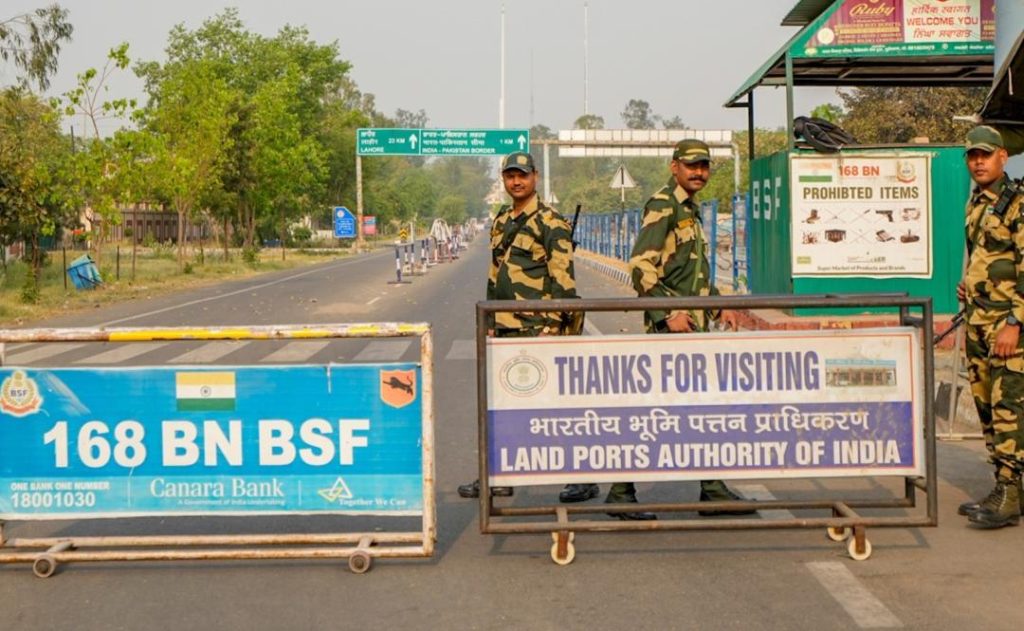
Attari-Wagah Border between India and Pakistan Completely Closed
In a shocking development, the Attari-Wagah border between India and Pakistan was completely closed on Thursday, as reported by PTI. The border, which is one of the most heavily guarded and busiest border crossings between the two countries, saw no movement of people from either side on this particular day. This sudden closure comes on the heels of a series of tense events between the two nations, which have been escalating in recent weeks.
The mass deportations of Pakistani nationals by India, following the Pahalgam terror attack that left 26 tourists dead, had already sparked concerns about the safety and security of Pakistani citizens. In response to these deportations, Pakistan had earlier shut the border and stopped accepting its citizens who were being deported by India. This move was seen as a retaliatory measure by the Pakistani authorities, aimed at protesting the Indian government’s decision to deport Pakistani nationals.
The Pahalgam terror attack, which occurred on October 8, was a brutal and senseless act of violence that shocked the nation. In the aftermath of the attack, the Indian government swiftly took action to deport Pakistani nationals who were found to be involved in the attack or had links to the terrorist organization responsible for the attack. While the move was seen as a necessary step to protect the country’s security, it also led to widespread outrage and protests in Pakistan, where many saw the deportations as a violation of human rights.
The closure of the Attari-Wagah border is seen as a significant development in the ongoing tensions between India and Pakistan. The border, which is a major trade and cultural hub, is a vital artery of communication between the two countries. Its closure will have far-reaching consequences for trade, tourism, and even diplomatic relations between the two nations.
The implications of the border closure are far-reaching and have the potential to impact a wide range of people, from traders and businessmen to students and tourists. The border is a major route for the exchange of goods and services between the two countries, with millions of dollars worth of trade passing through it every year. The closure of the border will disrupt this trade and could have significant economic consequences for both countries.
Furthermore, the border closure will also have a devastating impact on the thousands of people who rely on it for their livelihood. Many small-scale traders and businessmen rely on the border to transport goods to and from Pakistan, and the closure of the border will leave them stranded and unable to earn a living. Similarly, students and tourists who were planning to travel to or from Pakistan will be severely affected by the closure of the border.
The closure of the Attari-Wagah border is also seen as a major diplomatic setback for both countries. The border is a symbol of the fragile peace between India and Pakistan, and its closure will only add to the already strained relations between the two nations. The move will also raise questions about the future of bilateral talks and negotiations between the two countries, which have been stalled in recent months.
In conclusion, the closure of the Attari-Wagah border between India and Pakistan is a significant development that has far-reaching implications for trade, tourism, and diplomatic relations between the two nations. While the move may have been seen as a necessary step to protect national security, it also highlights the need for greater dialogue and cooperation between the two countries to resolve their differences peacefully.






